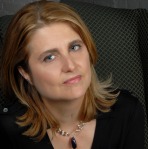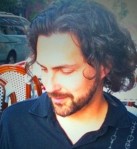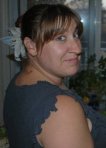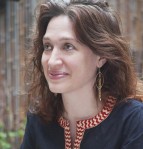The Interviews
DirectorSpeak is interviewing the Indie directors of New York City. Here are the interviewees thus far. Click on the name to get to the interview, and please feel free to leave your feedback in the comments section!
Daniel Talbott: “I think theater is a conquering of fear. Well, you can never CONQUER fear, but it’s almost like holding hands with fear and walking forward. That’s what it’s like for me, in an active way. And walking forward is action. And if you walk forward with fear, then fear can become an ally in a strange way.”
Ludovica Villar-Hauser: “I love the fact that I always find that working in New York, you’re competing against yourself. You want to do better. And I like that. Maybe it’s the same everywhere, maybe it’s just part of life’s journey, but I find it very specific in New York.”
Heather Cohn: “I feel like we have such an opportunity in theatre to be more magical. You have to create it in a theatrical way – using the imagination of the audience. And audiences can imagine a LOT, and will go with you if they have the freedom to imagine. I have so much fun discovering those magical moments.”
Mark Finley: On the joys of directing in NYC: “If you have a “hit” -you know that you really communicated it, and you can feel that it connected- knowing that you did that HERE, in a theatre town, is really rewarding. To hear about your work from other people, people who “get” theatre. That’s special.”
Samuel Buggeln: “One of the great things about directing is virtually everything you do can feed the job. You get fed by everything and you belch it back out into a play. So, to keep with the metaphor – keep eating! Be voracious, be hungry, be non-choosey – just eat and eat and eat all the culture and imagery and language and art that you can. Because it’s all grist for the mill.”
Glory Kadigan: “I’m usually very connected to whatever the piece is, whatever the energy of the piece is. So if the energy is fun, comedy, sexy, light – then that’s going to create an incredibly different process for me than something which is dark, restrictive, a different kind of energy.”
Akia: “I think being a director means being a strong leader, and I think being a collaborator is also a huge part of it. It means you need to be aware and care for the other people in the collaboration process. I think that ideally a director needs to be someone that can put the puzzle together in many different layers – not only to have a strong artistic sense onstage, but having a really good idea and perspective about the needs of the people that you’re collaborating with, and what everyone’s bringing to the table.”
Tim Errickson: “The biggest thing that I’ve learned is that my job as the director starts when I experience the play. I think that the directing all starts with that initial response. It’s not about making a chair, it’s about making a beautiful chair, a chair that is functional but has delicacy, or is very sturdy – something that is idiosyncratic to the person who made it.”
Rachel Klein: I think I wanted to direct before I knew exactly what it even meant to be a director. I saw Edward Scissorhands in the movie theater as a child and was mesmerized by the larger than life methods of visual story telling: the precise color schemes, and the character choices. From that point forward I knew I wanted to do whatever that was, creating environments and performance-scapes, rather than performing in the pieces themselves.
Festival Shorts: Director Fest!: Instead of a full interview with one director, this article is two questions given to several directors about directing in a festival environment. The directors include Joe Raik, Ashley Marinaccio, Tom Slot, Marcus Yi, Joan Kane, Michael Criscuolo and Sarah Chichester.
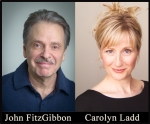 Double The Directors: Carolyn Ladd & John FitzGibbon CL: “…when I direct, I enjoy the larger canvas of the entire stage or a score and the interaction of characters in time and space. Experimenting with how rhythm, space, time, movement, voice and text can be manipulated to enhance the telling of a story is challenging and exciting. It is a continual process of discovery…”
Double The Directors: Carolyn Ladd & John FitzGibbon CL: “…when I direct, I enjoy the larger canvas of the entire stage or a score and the interaction of characters in time and space. Experimenting with how rhythm, space, time, movement, voice and text can be manipulated to enhance the telling of a story is challenging and exciting. It is a continual process of discovery…”
Tom Wojtunik: I learn lessons all the time while directing. I’m always learning how to be a better collaborator from the people I work with, and I’ve found I can never be too prepared–you can save so much stress during crunch times by actually spending the time to have detailed conversations about every prop, costume piece, and scene change way ahead of time.”
 Planet Connections Theatre Festival Gala: This one’s a little different. I interviewed all the director/playwright teams for PCTF’s Gala. Those interviewed include directors Moritz von Stuelpnagel, Mia Rovegno, Jessi D. Hill and Glory Kadigan, as well as playwrights Wendy MacLeod, Erik Ehn, Winter Miller and Israel Horovitz.
Planet Connections Theatre Festival Gala: This one’s a little different. I interviewed all the director/playwright teams for PCTF’s Gala. Those interviewed include directors Moritz von Stuelpnagel, Mia Rovegno, Jessi D. Hill and Glory Kadigan, as well as playwrights Wendy MacLeod, Erik Ehn, Winter Miller and Israel Horovitz.
Edinburgh Festival Fringe: American Directors in Scotland: For this set of interviews, I decided to ask a few directors that were taking projects from NYC to Edinburgh Fringe some questions about that journey. Their answers turned into an epic seven posts! Directors include: Katrin Hilbe, Joan Kane, Jessi Hill, Luke Tudball, John Clancy, Joe Polis, Antony Raymond, Cindy Sibilsky, Padraic Lillis, Scott Slavin, Martha Wollner, Peter Michael Marino, Joshua William Gelb.
 Craig Baldwin: “And that was a brilliant piece of advice for any theater artist. Imagine you know nothing and start from there. It seems counter-intuitive, given how hard we work to learn our craft and examine these plays, and study the prevailing wisdom on them… but to start fresh, every time, to re-invent the wheel with every show, to acknowledge that at first the play is just the pages and the words? That is the only way to make theater.”
Craig Baldwin: “And that was a brilliant piece of advice for any theater artist. Imagine you know nothing and start from there. It seems counter-intuitive, given how hard we work to learn our craft and examine these plays, and study the prevailing wisdom on them… but to start fresh, every time, to re-invent the wheel with every show, to acknowledge that at first the play is just the pages and the words? That is the only way to make theater.”
Kira Simring: “I admire an open-minded ability to make lots of different choices within the texts. I admire actors’ courage in general.”
 Heidi Grumelot: “Every production process is so different, that at least once in every production I have a moment when I am completely overwhelmed. There are a lot of moving parts. Conversely, there is always a moment of amazement as well; it might be a random conversation that resulted in an amazing conversation or a found object that inspires a fundamental part of the storytelling. All of this is what keeps me interested and excited about directing.”
Heidi Grumelot: “Every production process is so different, that at least once in every production I have a moment when I am completely overwhelmed. There are a lot of moving parts. Conversely, there is always a moment of amazement as well; it might be a random conversation that resulted in an amazing conversation or a found object that inspires a fundamental part of the storytelling. All of this is what keeps me interested and excited about directing.”
NYC Icon Plays: This compilation interview asks 6 directors (myself included) about directing in a site-specific environment. The directors include Katrin Hilbe, Joan Kane, Luke Tudball, Kacey Stamats, Janet Bentley and me.



